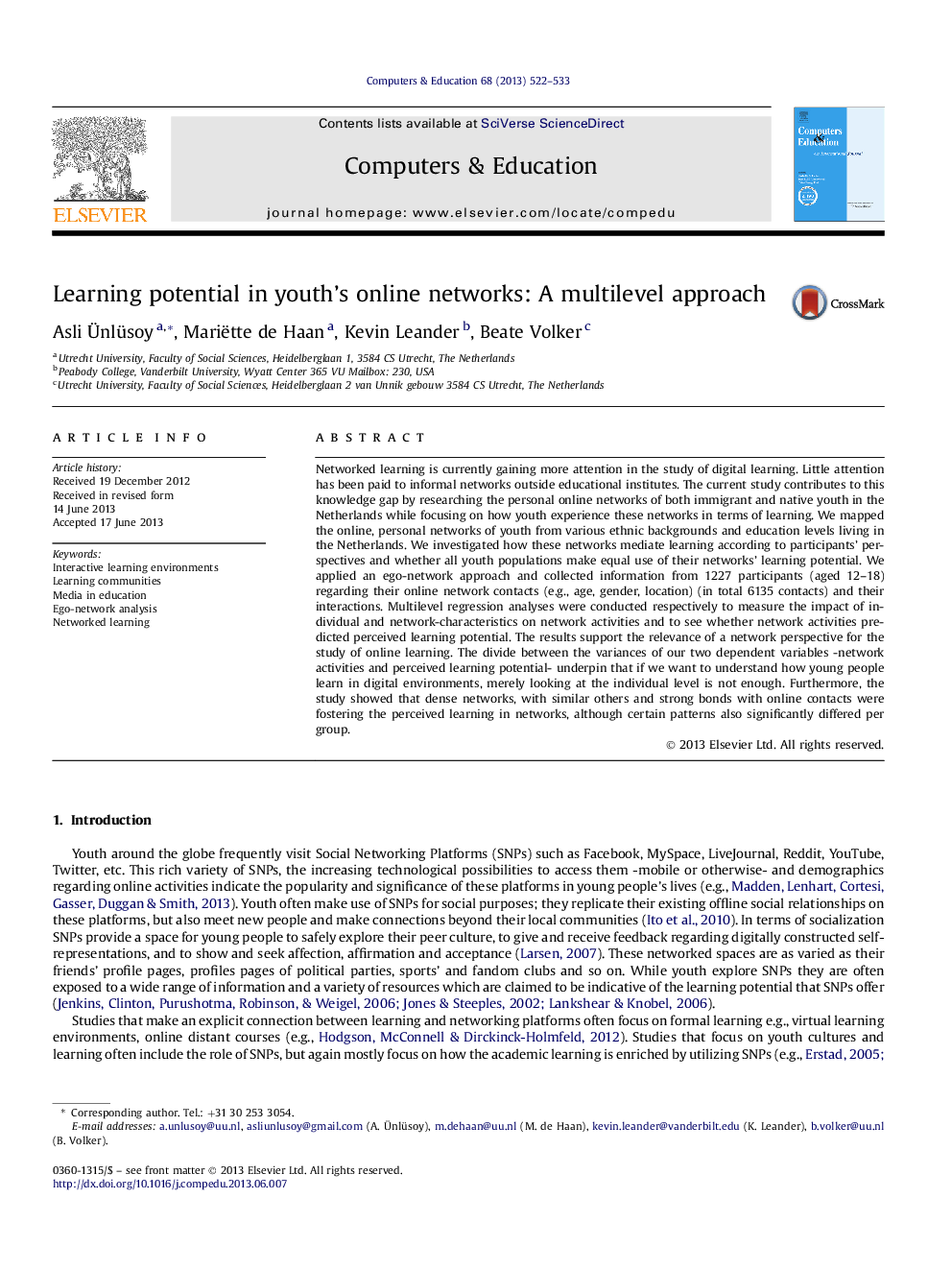| کد مقاله | کد نشریه | سال انتشار | مقاله انگلیسی | نسخه تمام متن |
|---|---|---|---|---|
| 348504 | 618189 | 2013 | 12 صفحه PDF | دانلود رایگان |

• The study of network structures is relevant to investigate learning.
• Networked learning is a likely result of frequent, diverse network activities.
• Densely-knit, homogeneous ego-networks endorse learning activities.
• Diverse ego-network configurations shape learning experiences differently.
Networked learning is currently gaining more attention in the study of digital learning. Little attention has been paid to informal networks outside educational institutes. The current study contributes to this knowledge gap by researching the personal online networks of both immigrant and native youth in the Netherlands while focusing on how youth experience these networks in terms of learning. We mapped the online, personal networks of youth from various ethnic backgrounds and education levels living in the Netherlands. We investigated how these networks mediate learning according to participants’ perspectives and whether all youth populations make equal use of their networks’ learning potential. We applied an ego-network approach and collected information from 1227 participants (aged 12–18) regarding their online network contacts (e.g., age, gender, location) (in total 6135 contacts) and their interactions. Multilevel regression analyses were conducted respectively to measure the impact of individual and network-characteristics on network activities and to see whether network activities predicted perceived learning potential. The results support the relevance of a network perspective for the study of online learning. The divide between the variances of our two dependent variables -network activities and perceived learning potential- underpin that if we want to understand how young people learn in digital environments, merely looking at the individual level is not enough. Furthermore, the study showed that dense networks, with similar others and strong bonds with online contacts were fostering the perceived learning in networks, although certain patterns also significantly differed per group.
Journal: Computers & Education - Volume 68, October 2013, Pages 522–533